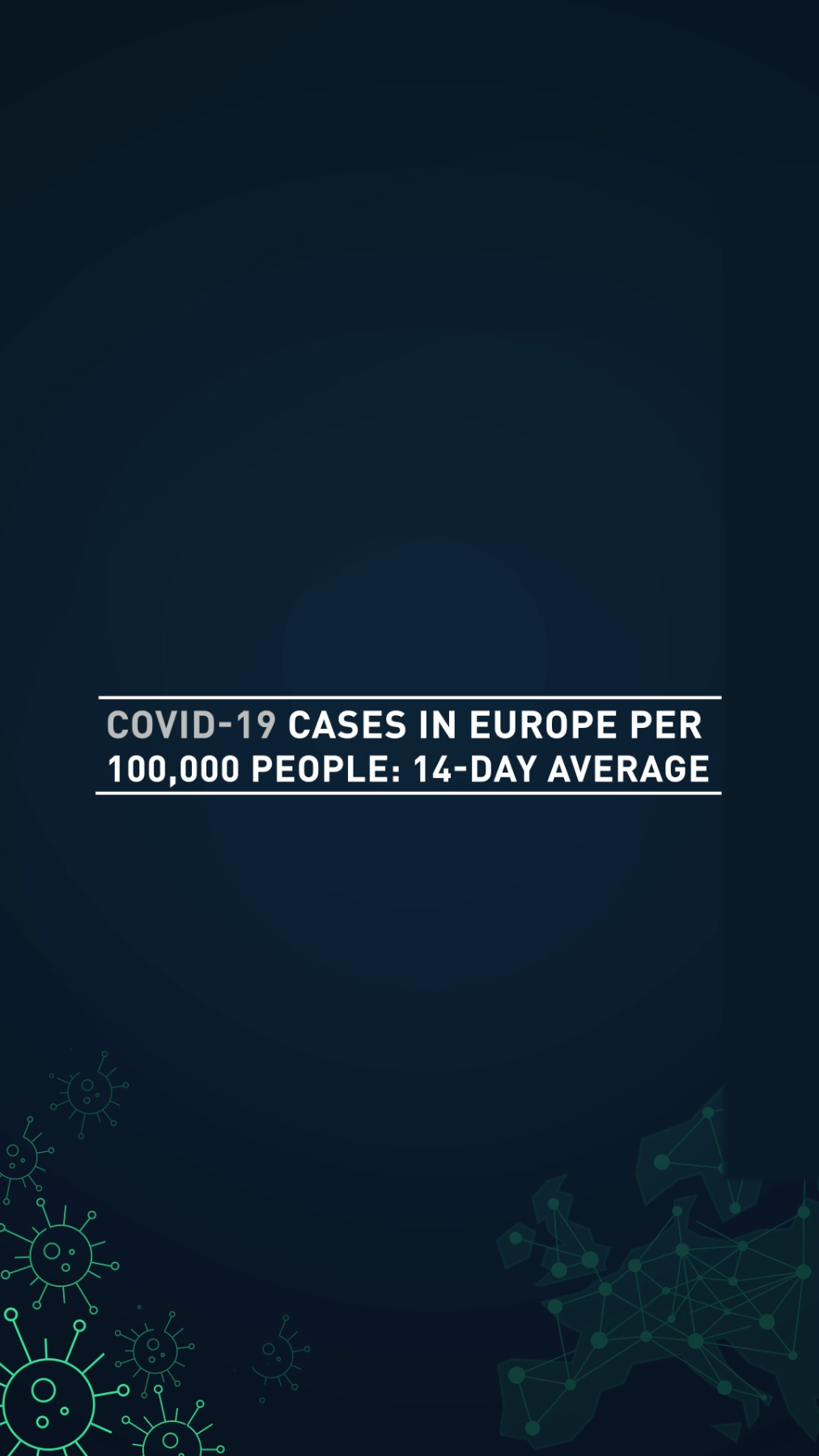TOP HEADLINES
- British Prime Minister Boris Johnson has rejected criticism he was too slow in introducing stricter restrictions in England as new lockdown measures, set to come into effect from Thursday, are expected to devastate the UK's pre-Christmas economy.
- Italian prime minister Giuseppe Conte said he will tighten coronavirus restrictions but is holding back from re-introducing a nationwide lockdown.
- Belgium and Germany have entered new national lockdowns, with the former shuttering non-essential shops including hairdressers and the latter closing bars, cafes and restaurants for the first time since Europe's second wave hit.
- Despite the rise in new coronavirus in the Netherlands hitting its slowest pace in roughly two weeks, a new set of restrictions is expected to be added to current lockdown measures this week.
- Europe's new cases have doubled in five weeks, pushing the continent's total number of infections over 10 million, according to a Reuters tally.
- French supermarkets will have to stop selling non-essential goods under new coronavirus measures, after small business owners hit out at having to close while larger retailers were still allowed to sell items including shoes, clothes, and beauty products.
- German Chancellor Angela Merkel said while there would be no big New Year's Eve parties in Germany, families should be able to come together for Christmas this year.
- Eurozone finance ministers will meet on Tuesday to discuss their response to Europe's economic outlook amid a second wave of lockdowns and infections.
- More than 3.6 million people in Slovakia participated in nationwide testing scheme over the weekend, with 1.06 percent of the population testing positive, Prime Minister Igor Matovic announced on Monday.
- Amsterdam soccer club Ajax has had 11 players test positive for COVID-19, a day before their Champions League match against Danish side FC Midtjylland.
- The Swiss city of Geneva, the host of the UN offices and the World Trade Organization, is introducing lockdown measures that go beyond more lenient rules elsewhere in Switzerland.

A German protester wears a bucket as protection during a demonstration against COVID-19 restrictions in Munich. /Christof Stache/AFP
A German protester wears a bucket as protection during a demonstration against COVID-19 restrictions in Munich. /Christof Stache/AFP
AROUND EUROPE
Stefan de Vries in Amsterdam
The Dutch Government is likely to announce stricter measures in the fight against the coronavirus. Based on sources in The Hague, Dutch media have reported that the number of people walking together outside could be reduced to two, rather than four people. Museums, theatres and cinemas could also be closed for a fortnight.
The measures will likely go into effect on Thursday, in addition to current restrictions brought in on October 14, when restaurants and bars were closed.
The number of new infections decreased slightly over the weekend, with the National Health Institute (RIVM) reporting 8,740 positive tests on Sunday, 1,079 fewer than the day before.

Alex Fraser in Milan
Italy's Prime Minister Giuseppe Conte was due to speak in the chamber of deputies at 11 a.m. GMT about possible further restrictions to try to slow the spread of the coronavirus.
On Sunday, reports in national newspapers indicated Italy would implement regional lockdowns, including in the two cities with the highest number of cases, Milan and Naples. The governors of Lombardy and Campania are opposed to purely regional measures and have asked the government to apply any lockdown measures at a national level.
After talks between local leaders and the governments, it appears that Conte will not seek a full lockdown for now, favoring instead the use of coronavirus "red zones," which Italy used at the end of February, before declaring a first national lockdown on March 10.
A new 9 p.m. curfew, restrictions on travel between regions and limitations on movement for people aged 70 and over are all potential measures being discussed, some of which could be implemented as early as Tuesday.
Protests against a second lockdown continued across the country throughout the weekend and on Monday morning, bar and restaurant workers gathered in Rome's Piazza del Popolo to demonstrate against new restrictions.
00:20

Toni Waterman in Brussels
Belgium has entered its second nationwide lockdown this year as the government tries to get a grip on surging COVID-19 cases.
As of Monday, all non-essential shops, salons, and tattoo parlors are closed until December 13. House visits are limited to one "cuddle contact," with schools closed until November 15.
Since the first lockdown in spring 2020, the definition of an "essential" shop has been expanded to include hardware shops, gardening stores and fabric sellers, among others, as the government tries to keep the economy running.
Belgium reported 11,789 new cases in the past 24 hours, a slight slowdown from last week. However, the death rate has climbed 70.4 percent in the past week to an average of 113 deaths a day. ICU beds are also running low and efforts to transfer patients to Germany for treatment intensified over the weekend.
FROM OUR GLOBAL COLLEAGUES
CGTN Europe: What are mutated strains of COVID-19 and are they important?
CGTN China: Chinese mainland reports 24 new COVID-19 cases, 21 from overseas
CGTN America: Day of the Dead culture alive and well
CGTN Africa: Rwanda maintains single-digit daily COVID-19 infections
Sign up here to get the COVID-19 Europe bulletin sent directly to your inbox
CGTN Europe has been providing in-depth coverage of the novel coronavirus story as it has unfolded. Here you can read the essential information about the crisis.
Source(s): Reuters
,AFP